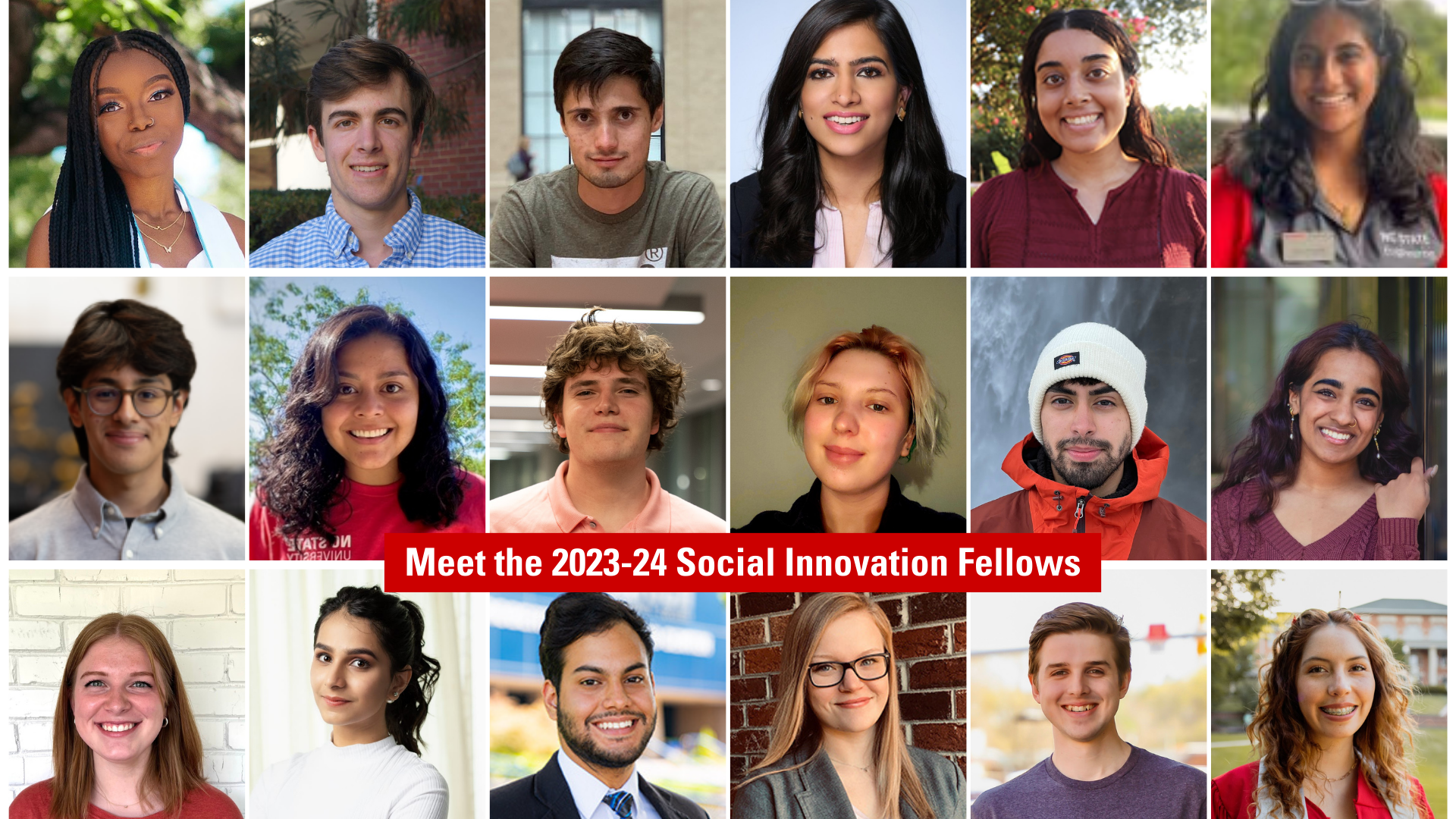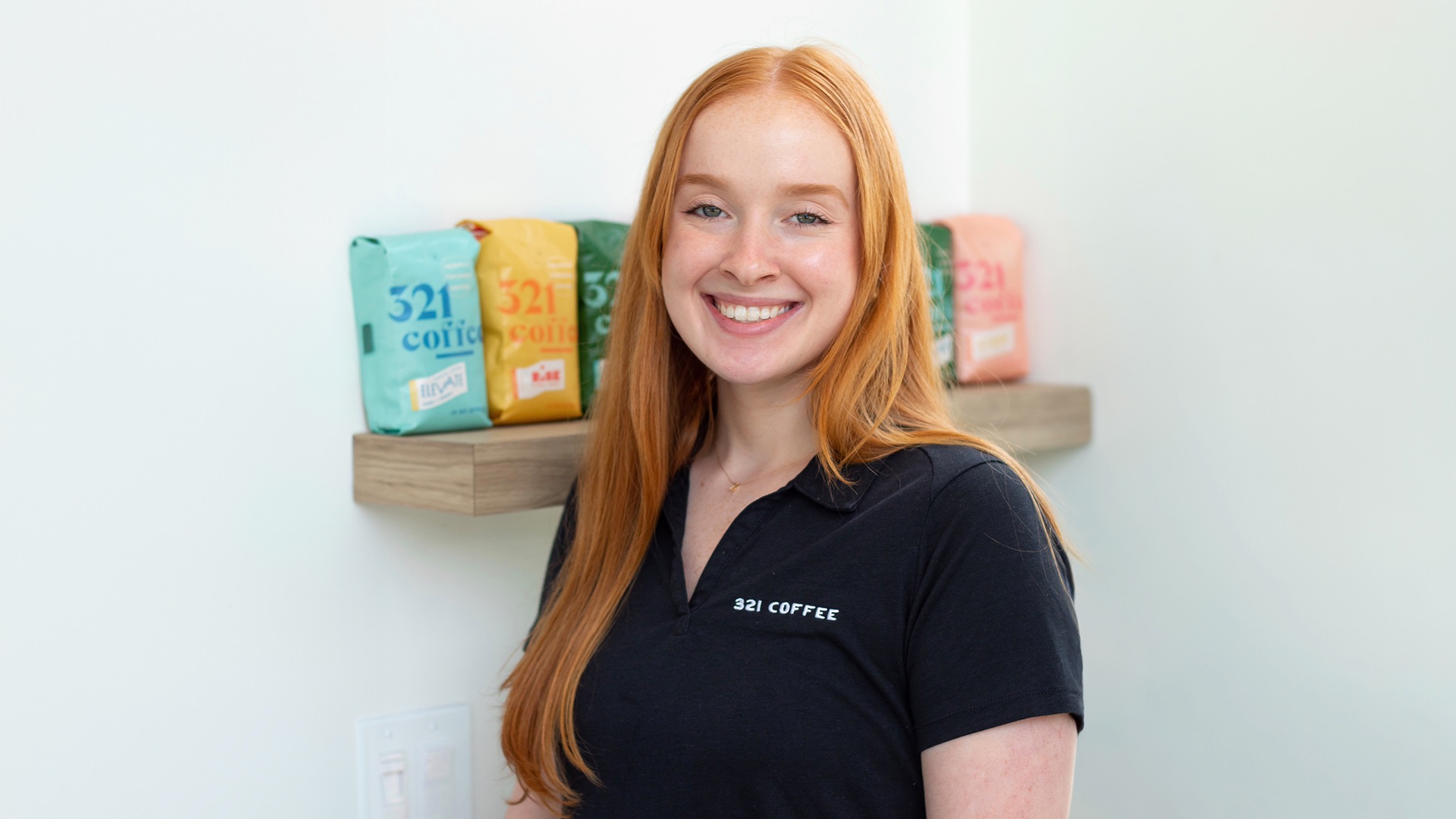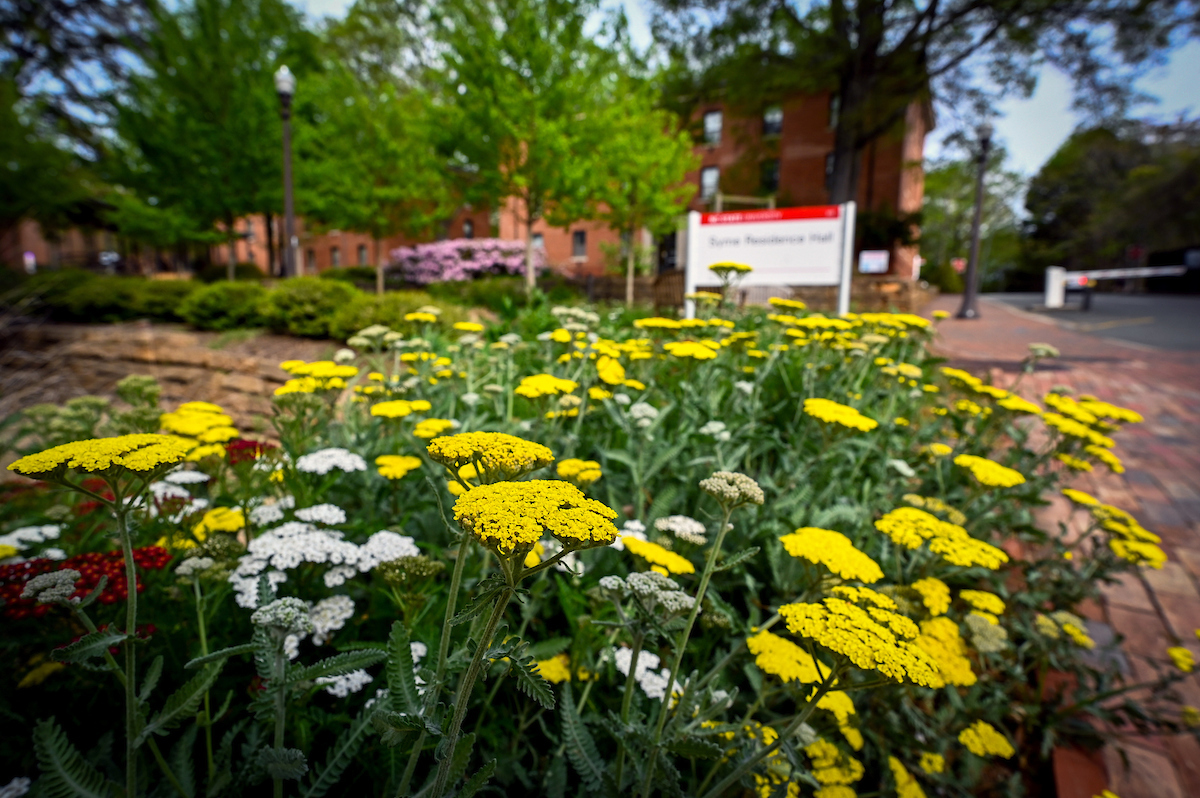Helping Improve Waste Reduction Education on Campus
NC State Student Government Approves Social Innovation Fellows Bill to Require Waste Sorting Training for Incoming Students
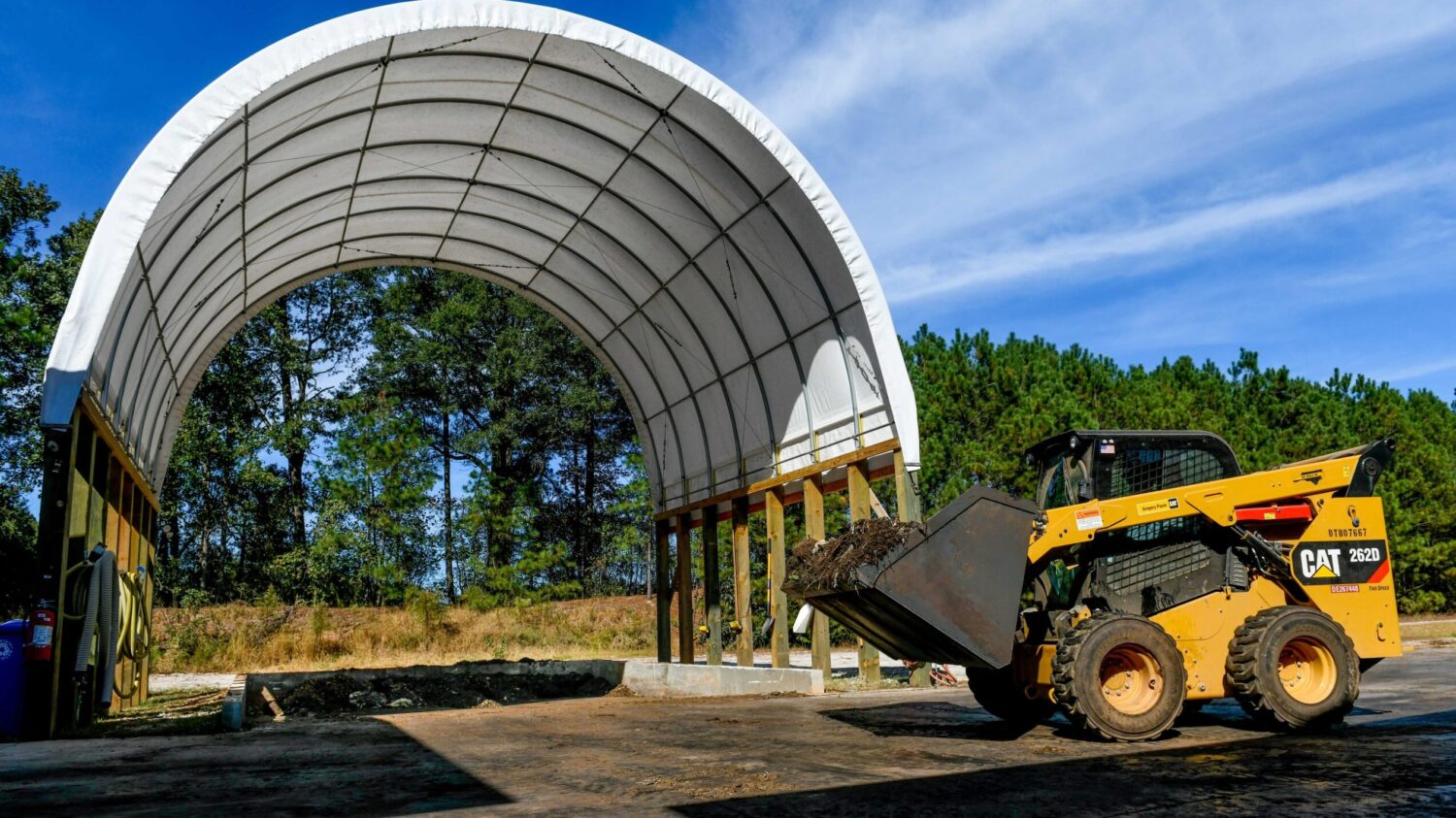
Social innovation is a marathon and a sprint.
The 2020-21 Compost Facility and Research Cooperative team learned this lesson when their project met a major milestone almost a year after they left the Social Innovation Fellows (SIF) program. The team, comprised of Eden Millan, Julia O’Brien, Skye Pham, Stephanie Gongora, and Senior Fellow Haley Hall, recently learned that NC State’s Student Government approved their bill to implement mandatory waste sorting training for incoming students.
Skye Pham, a member of the 2020-21 Social Innovation Fellows cohort and a Senior Fellow for the 2021-22 cohort, described the bill as requiring “incoming students to take online courses that detail how to properly sort waste into landfill, recycling, and compost. We hope that the implementation of waste sorting reporter training for all incoming students will help to reduce compost contamination on campus and help NC State reach its waste diversion goal.”
All incoming students will be required to take a REPORTER training similar to the University’s data security training. This legislation passed with unanimous support from NC State Student Government.
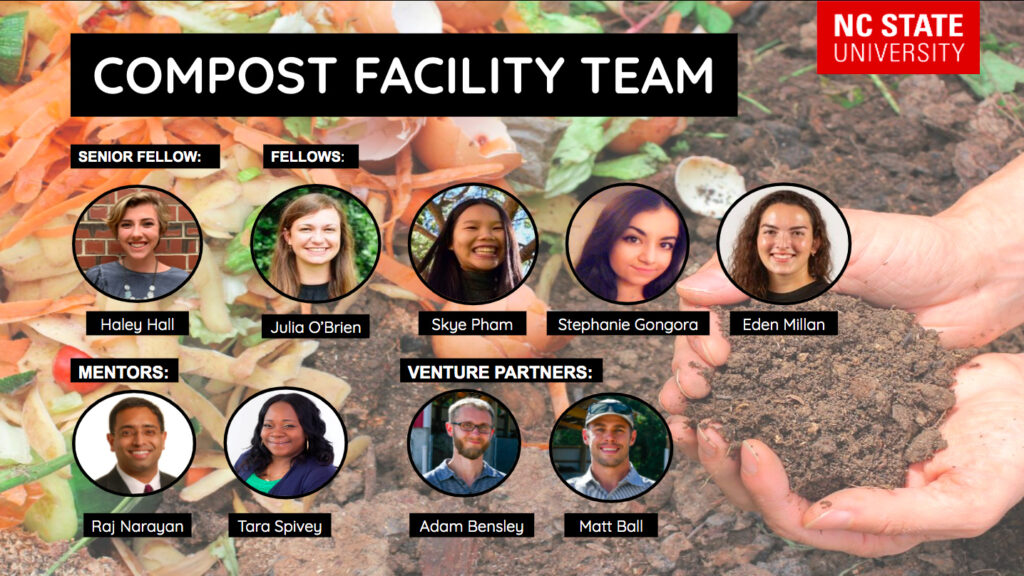
The team was mentored by Raj Narayan and Tara Spivey who helped the members implement tools that SIF instilled in its Fellows including stakeholder mapping, systems-level thinking, and voice of the stakeholder analysis, as well as SIF’s Discover, Design, and Do Good framework.
“The framework provides the team with an iterative process that enables their inquiry and decision making towards achieving a goal,” Narayan said. “This provides the team with a foundational understanding of how to identify and address enduring problems in our society.”
The Discover, Design, Do Good framework allowed the group to feel comfortable with their position in the social innovation process while also allowing them to be flexible and adaptable to accept a year-long wait to see their success.
“The framework relieved some pressure because we could move through the different steps without feeling like we needed to rush to a solution right away,” Pham said. “While creating our final presentation we reflected on how iterative and circular the process was. We would have conversations that made us hopeful that we were going to find a solution and we would move in that direction, but then we would discuss the idea with our Venture Partner, Team Mentor, and Senior Fellow and completely be redirected based on the additional input and knowledge that they provided.”
Between the long, disheartening wait and the continuing effect of the COVID-19 pandemic on the design process, it wouldn’t have been shocking to see the group quit, but Narayan said their group dynamics empowered them to be successful and enduring.
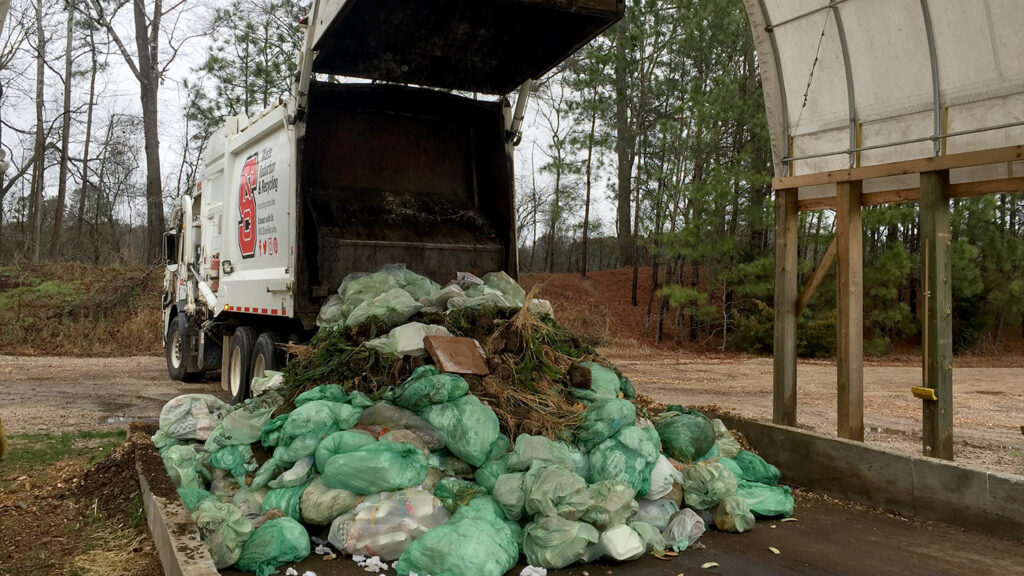
“This team was very creative and worked collaboratively and effectively with one another,” Narayan said. “They supported each other during a challenging time and were adaptive and resilient in their approach towards stakeholder inquiry and analysis. One of the qualities of this team was their ability to pivot and focus their attention on the needs of their key stakeholders. This adaptive leadership orientation is essential for successful entrepreneurs and the team utilized their impressive adaptive leadership skills to enable the outcome that they were envisioning.”
Overall, the team is a textbook example in endurance and flexibility, but also teamwork. The team members know they could not have succeeded without each other or their mentors. They would like to thank Adam Benslet and Matt Ball from the Compost Facility and Research Cooperative, Ann Winstead from NC State Sustainability, Lani St. Hill from Waste Reduction and Recycling, and all of their other stakeholders who were essential to their success.
This article was written by Austin Dunlow, who is a 2021-22 Senior Fellow for the Social Innovation Fellows and a member of the 2020-21 SIF cohort. He is a 2021 graduate from NC State’s College of Humanities and Social Sciences with a degree in political science and is currently a graduate student in international studies.
- Categories:
